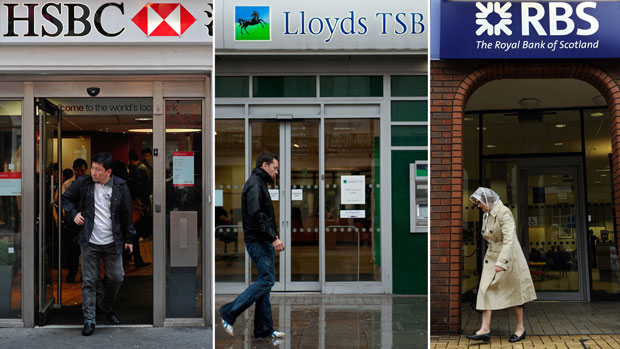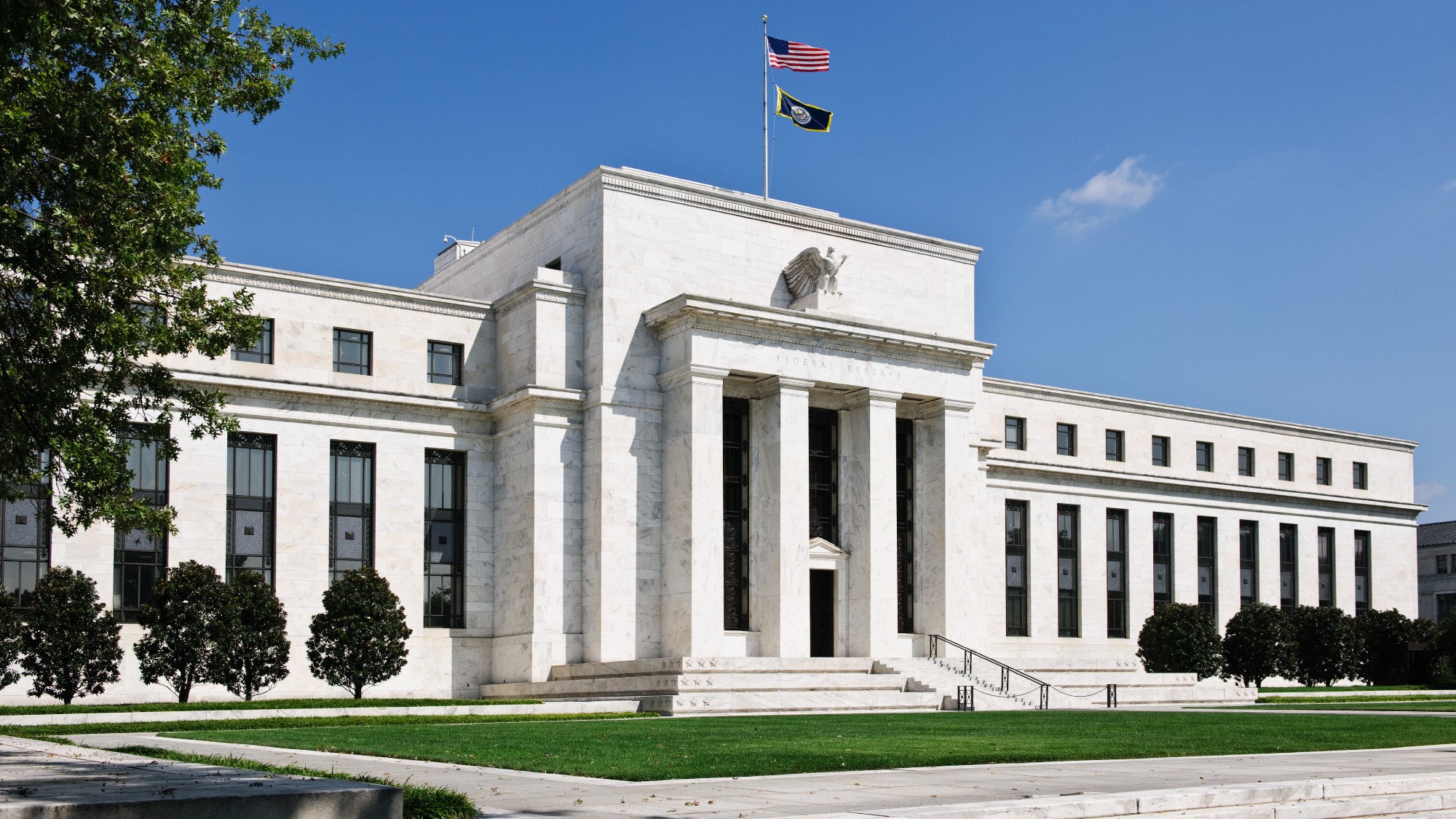Why the top savings rates aren't on the high street
Challenger banks may have unfamiliar names, but they offer security as well as good returns

A free daily email with the biggest news stories of the day – and the best features from TheWeek.com
You are now subscribed
Your newsletter sign-up was successful
In the past six years a new breed of bank has been trying to gain a foothold in the UK market. And almost imperceptibly, they have built up a presence in the savings market. Take a look at best buy tables today and you will struggle to recognise any of the banks and building societies vying to hold your money.
Traditional institutions such as HSBC, NatWest and Barclays have continued to offer poor deals to savers, with rates regularly below one per cent. But unfamiliar names such as Charter Savings, Shawbrook Bank and Vanquis have leapfrogged them to offer the best savings rates.
"Six years ago, before the Bank of England reduced the base rate to just 0.5 per cent, the savings landscape looked very different," says Anna Bowes, director of Savings Champion in The Times. "Santander, Halifax and Nationwide would regularly appear in the best buy tables. Today the high street banks have simply disappeared from the savings limelight."
The Week
Escape your echo chamber. Get the facts behind the news, plus analysis from multiple perspectives.

Sign up for The Week's Free Newsletters
From our morning news briefing to a weekly Good News Newsletter, get the best of The Week delivered directly to your inbox.
From our morning news briefing to a weekly Good News Newsletter, get the best of The Week delivered directly to your inbox.
At the moment the high street banks just aren't interested in capturing deposits from savers. In contrast the so-called challenger banks want to build up their customer base and the easiest way to do that is to offer the best savings rates.
As a result the best buy tables are full of names you may not know. For example the top easy access account is offered by the UK arm of French name RCI Bank with a rate of 1.5 per cent. Look for a recognised name and the best on offer is 0.75 per cent from NatWest.
If you are looking for a fixed-rate bond then Charter Savings Bank is top of the one-year tables with a rate of 2 per cent. On the high street, HSBC is offering just 1 per cent.
For two-year bonds the best of the bunch is Al Rayan Bank paying 2.32 per cent, which is 1.17 per cent more than Natwest is offering. That means you'll earn £117 more with Al Rayan on a £10,000 deposit.
A free daily email with the biggest news stories of the day – and the best features from TheWeek.com
Over three years Vanquis Bank is paying 2.46 per cent, whereas Lloyds would pay you 1.4 per cent over the same period. That's an earnings difference of £106 on a £10,000 deposit.
On the five-year bond best buy tables Secure Trust is top with a rate of 3.11 per cent. It's hard to find a big name that even offers a five-year bond.
Even though money will earn far more if it is deposited with a challenger bank, many of us are still nervous about these unknown names. But there really is no need to be.
Most providers are covered by the UK Financial Services Compensation Scheme (FSCS) and regulated by the Financial Conduct Authority. This means that as long as you don't deposit more than £85,000 individually or £170,000 in joint names with each brand your money is as safe as if it would be in a high-street bank.
Foreign banks may be covered either by the FSCS or their own country's equivalent. For example, RCI Bank is covered by the French government's guarantee to a maximum of €100,000 per person. Just be aware if you are putting your money with a bank whose guarantee is in a different currency that exchange rate fluctuations could affect how much of your money is protected.
-
 How Democrats are turning DOJ lemons into partisan lemonade
How Democrats are turning DOJ lemons into partisan lemonadeTODAY’S BIG QUESTION As the Trump administration continues to try — and fail — at indicting its political enemies, Democratic lawmakers have begun seizing the moment for themselves
-
 ICE’s new targets post-Minnesota retreat
ICE’s new targets post-Minnesota retreatIn the Spotlight Several cities are reportedly on ICE’s list for immigration crackdowns
-
 ‘Those rights don’t exist to protect criminals’
‘Those rights don’t exist to protect criminals’Instant Opinion Opinion, comment and editorials of the day
-
 4 easy tips to avoid bank fees
4 easy tips to avoid bank feesThe Explainer A few dollars here and there might seem insignificant, but it all adds up
-
 How will Fed rate cuts affect the housing market?
How will Fed rate cuts affect the housing market?the explainer An anticipated series of Federal Reserve cuts could impact mortgage rates
-
 Mis-sold car finance: who will be entitled to compensation
Mis-sold car finance: who will be entitled to compensationThe Explainer City regulator to launch payout scheme after Supreme Court ruling spares motor industry's 'worst-case scenario'
-
 What is the Federal Reserve and what does it do?
What is the Federal Reserve and what does it do?The explainer The decisions made by the United States' central banking system have very real economic effects
-
 What are certificates of deposit and how do they work?
What are certificates of deposit and how do they work?The Explainer CDs may be the right solution for your savings goals
-
 The pros and cons of online-only banks
The pros and cons of online-only banksthe explainer You can get your finances in order without getting off your couch
-
 How to choose a high-yield savings account
How to choose a high-yield savings accountThe Explainer What to consider, from interest rates to fees to accessibility
-
 How new bank transfer scam protections could help you
How new bank transfer scam protections could help youThe Explainer Banks must now refund up to £85,000 of losses from authorised push payment fraud